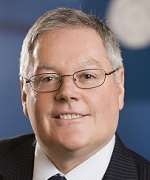Two key industry stakeholders, who usually find themselves on opposite sides of the advice debate, have both given the thumbs-down to a proposal to introduce a new regulatory body to monitor financial advisers.
Last week, the Financial Services Council (FSC) recommended that a new Advice Standards Board be established to oversee the financial advice profession (see: Advice Sector Can’t Self-Regulate). However, the Financial Planning Association (FPA) and Industry Super Australia (ISA) have voiced their opposition to the proposal, labelling it an ineffective solution.
The FSC proposal was included in the Council’s submission to the Parliamentary Joint Committee (PJC) on Corporations and Financial Services, which is currently conducting an inquiry into proposals to lift the professional, ethical and education standards in the financial services industry. In its submission to the inquiry, the FPA said the current RG146 education standard should be replaced with its own Financial Planning Education Council ‘Higher Education Curriculum and Accreditation Framework in Financial Planning’, with the use of the terms ‘financial planner/financial adviser’ to be restricted to members of recognised professional associations.
“We have long called for higher education standards and strongly believe that these standards need to be set by a professional body and that there needs to be international independence around education and standards,” FPA CEO, Mark Rantall, said.
“The FSC proposal ignores the fact that four of the five largest FSC members support the Certified Financial Planner designation as the appropriate standard to aspire to.” (Certified Financial Planner is the FPA’s professional designation.)
We don’t need a new Board to oversee the Australian financial advice industry
Mr Rantall argued that the FSC model would shift the responsibility of regulation onto government and away from much-needed internal reform.
“We don’t need a new Board to oversee the Australian financial advice industry. What we do need is long-term, effective change that is transparent,” he said.
“This model gives up on self-regulation, but creates more red tape. Removing the self-responsibility of advice businesses to do their best by consumers is not a solution.
“The financial planning issues we face as a nation require long-term, systemic change. This industry reform effort will require significant work on the part of individual planners and the organisations that lead and manage them. It isn’t a job for government.”
ISA Chair, Peter Collins, said the proposed Standards Board was an embarrassing back-flip by the banks.
“Following an extraordinary lobbying campaign by the banks and financial advisers, the Future of Financial Advice Bill currently before Parliament gives the banks and advisers their wish-list at the expense of consumers,” Mr Collins said.
ISA supports all efforts to build the competency and professionalism of the financial advice industry
“The banks now recognise they went too far and have lost the support of the Australian public.”
Agreeing with FSC CEO, John Brogden, that consumer trust in financial advice was at an all-time low, Mr Collins said confidence would only come from delivering advice that is backed up by an unqualified best interests test and a comprehensive ban on sales incentives.
“Industry Super Australia supports all efforts to build the competency and professionalism of the financial advice industry, but the foundations are strong laws that protect consumers.”
The PJC is likely to conduct public hearings with industry stakeholders next month.




